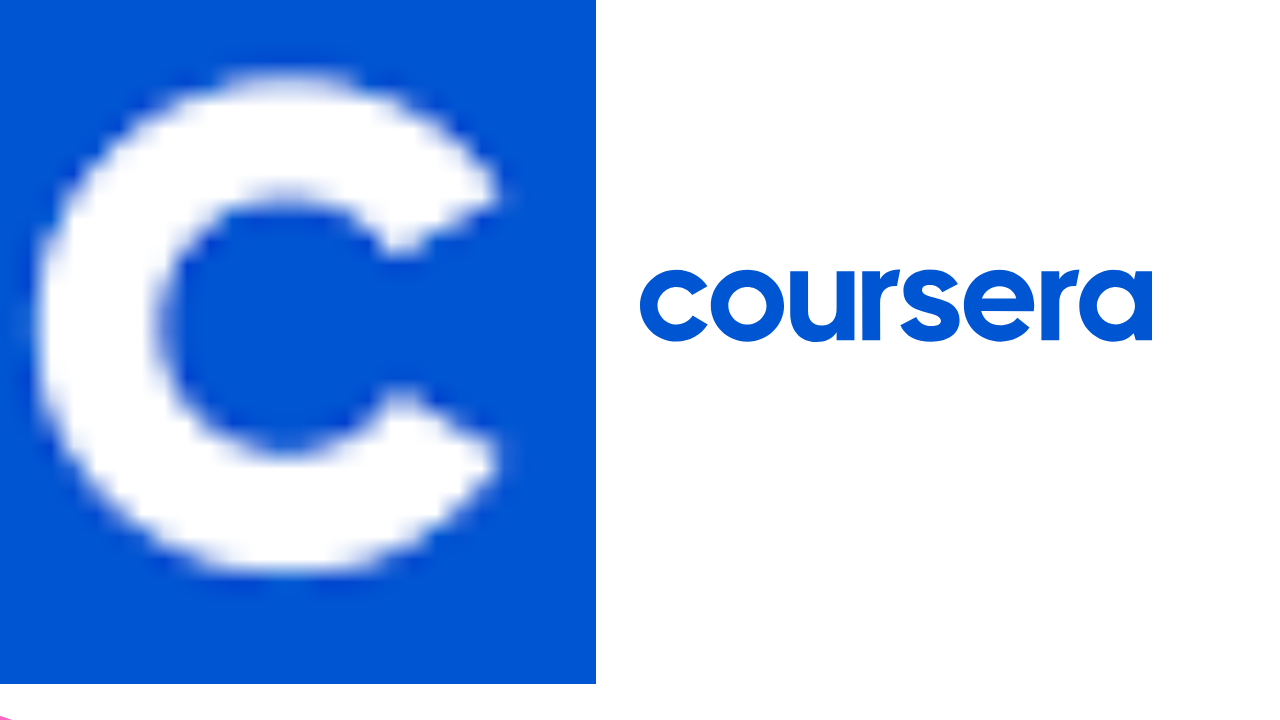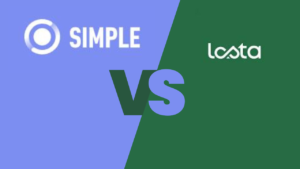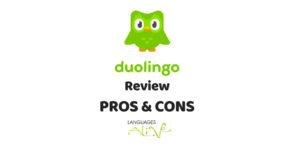In today’s rapidly evolving landscape of education, Coursera stands as a beacon of innovation, offering a gateway to knowledge and skills from the world’s leading universities and institutions. With its vast array of courses, flexible learning options, and emphasis on accessibility, Coursera has transformed the way millions of learners around the globe engage with education. As we delve into the intricacies of Coursera’s features, pricing, alternatives, and broader implications, it becomes clear that Coursera is not just a platform but a catalyst for lifelong learning, professional growth, and global impact.
Table of Contents
What is Coursera?
Coursera is an online platform that offers a wide range of courses and educational programs created by universities and institutions from around the world. It provides opportunities for people to learn new skills, gain knowledge in various fields, and earn certifications or degrees from the comfort of their own homes. Coursera covers diverse subjects, including computer science, business, humanities, health, and more. The courses are typically structured into video lectures, readings, quizzes, and assignments, and learners can interact with instructors and peers through discussion forums. Many courses are available for free, while others require payment for certification or access to graded assignments. Overall, Coursera aims to make quality education accessible to anyone with an internet connection.

Features
Coursera offers a multitude of features that make it a popular choice for online learning. Here are some of its main features:
- Diverse Course Catalog: Coursera boasts a vast catalog of courses covering a wide range of subjects, from computer science and engineering to humanities, business, health, and more. This diversity allows learners to explore various interests and pursue learning in their preferred areas.
- University and Institution Partnerships: Coursera collaborates with leading universities and institutions worldwide to offer high-quality educational content. This includes renowned universities like Stanford, Yale, and Princeton, as well as institutions like Google, IBM, and the World Bank. These partnerships ensure that learners have access to top-notch instructors and curriculum.
- Flexible Learning Options: Coursera provides flexible learning options to accommodate different schedules and learning preferences. Courses are typically self-paced, allowing learners to study at their own convenience. Additionally, many courses offer a “audit” option, where learners can access course materials for free without earning a certificate.
- Interactive Learning Experience: Courses on Coursera often include a variety of interactive elements to enhance the learning experience. This may include video lectures, quizzes, assignments, peer-reviewed assessments, and discussion forums. These features help reinforce learning and facilitate engagement with course material.
- Certifications and Degrees: Coursera offers certifications and even full degrees in partnership with universities and institutions. Learners can earn certificates upon completing individual courses or pursue specialized certifications and professional credentials. Additionally, Coursera offers online degrees in collaboration with accredited universities, providing a flexible and accessible pathway to higher education.
- Community and Collaboration: Coursera fosters a sense of community among learners through discussion forums and peer interaction. Learners can connect with each other, ask questions, and collaborate on assignments and projects. This sense of community helps facilitate learning and provides support throughout the learning journey.
- Mobile Accessibility: Coursera offers mobile apps for iOS and Android devices, allowing learners to access course materials and study on the go. The mobile apps provide a seamless learning experience, enabling learners to watch lectures, complete assignments, and participate in discussions from their smartphones or tablets.
Overall, Coursera’s main features combine to create a comprehensive and accessible platform for online learning, catering to the needs of learners around the world.
Pros & Cons
Here are some pros and cons of Coursera:
Pros:
- Accessibility: Coursera provides access to high-quality education from leading universities and institutions worldwide, making it accessible to learners regardless of their geographical location or socioeconomic background.
- Flexibility: Learners can study at their own pace and schedule, allowing them to balance their education with work, family, or other commitments. This flexibility makes Coursera suitable for lifelong learners and working professionals seeking to upskill or reskill.
- Diverse Course Catalog: With a vast array of courses spanning various disciplines, Coursera offers something for everyone. Learners can explore diverse interests, pursue career-specific skills, or delve into personal enrichment topics.
- Certifications and Degrees: Coursera offers certifications upon course completion and even online degrees in partnership with accredited universities. These credentials can enhance learners’ resumes, bolster their professional credentials, or serve as pathways to further education.
- Interactive Learning Experience: Courses on Coursera often feature interactive elements such as video lectures, quizzes, assignments, and discussion forums, fostering engagement and reinforcing learning.
- Community and Collaboration: Coursera provides opportunities for learners to connect with peers, share knowledge, and collaborate on projects. This sense of community can enhance the learning experience and provide support and motivation.
Cons:
- Cost: While many courses on Coursera are available for free, certifications and graded assignments often require payment. Additionally, pursuing online degrees may involve significant costs. This could be a barrier for learners with limited financial resources.
- Quality Variability: While Coursera partners with reputable universities and institutions, the quality of courses can vary. Some courses may be more rigorous and engaging than others, leading to inconsistency in the learning experience.
- Self-Directed Learning: Coursera’s self-paced format requires learners to be self-motivated and disciplined. Without the structure of traditional classroom settings, some learners may struggle to stay on track or maintain momentum.
- Limited Interaction with Instructors: Instructors in Coursera courses may have limited availability for direct interaction with learners. While some courses offer opportunities for Q&A sessions or office hours, personalized feedback and guidance may be limited compared to in-person learning environments.
- Potential for Cheating: In self-paced courses with remote assessments, there is a risk of cheating or academic dishonesty. Coursera employs measures such as proctored exams and peer-reviewed assessments to mitigate this risk, but it remains a concern in online education.
- Technology Requirements: Coursera’s online learning platform relies on internet connectivity and compatible devices. Learners without reliable internet access or access to suitable devices may face challenges in accessing course materials and participating fully in the learning experience.
Despite these drawbacks, Coursera remains a valuable resource for online learning, offering accessible education and opportunities for personal and professional growth.
Pricing
Coursera offers a variety of pricing options to accommodate different learner needs and budgets. Here’s an overview of the pricing structure:
- Free Courses: Coursera provides access to many courses for free. Learners can audit these courses, which allows them to access all course materials and lectures without charge. However, auditing typically does not include features like graded assignments or certificates of completion.
- Individual Course Purchases: Learners have the option to purchase individual courses on Coursera. This typically grants access to all course materials, graded assignments, and a certificate of completion upon finishing the course. Prices for individual courses can vary depending on factors such as course duration, complexity, and whether it offers a verified certificate.
- Specializations and Professional Certificates: Coursera offers curated sets of courses bundled together as specializations or professional certificates. Learners can purchase access to these programs, which often include multiple courses, hands-on projects, and a certificate upon completion. Prices for specializations and professional certificates vary depending on the number of courses included and the depth of the program.
- Coursera Plus: Coursera Plus is a subscription-based service that provides unlimited access to over 90% of Coursera’s catalog for a flat monthly or annual fee. With Coursera Plus, learners can explore and enroll in as many courses, specializations, and professional certificates as they like without additional charges. Coursera Plus also includes features like course certificates and access to exclusive content.
- Degrees and MasterTrack Certificates: Coursera partners with universities to offer fully online degrees and MasterTrack certificates. These programs typically involve a significant financial investment, similar to traditional higher education programs. However, they provide learners with the opportunity to earn accredited degrees or certificates from reputable institutions entirely online.
It’s important to note that pricing on Coursera can vary based on factors such as geographic location, currency, and promotional discounts. Additionally, financial aid options may be available for learners who demonstrate financial need. Overall, Coursera strives to provide a range of pricing options to make high-quality education accessible to learners worldwide.
Personal Experience
Users often report positive experiences with Coursera, highlighting its convenience, flexibility, and the quality of the educational content. Many appreciate the diverse range of courses available, allowing them to explore new interests or advance their careers without the constraints of traditional classroom settings. The ability to learn at their own pace and schedule is often cited as a major benefit, particularly for those juggling work, family, or other commitments.
Furthermore, users value Coursera’s interactive learning features, such as video lectures, quizzes, and assignments, which help reinforce learning and keep them engaged. The opportunity to earn certifications and degrees from reputable institutions is also highly regarded, as it provides tangible proof of their skills and knowledge to employers or academic institutions.
However, some users have raised concerns about the cost of certain courses and programs on Coursera, especially for learners on tight budgets. Others have noted occasional technical issues with the platform or inconsistencies in course quality.
Overall, the general sentiment towards Coursera is positive, with many users finding it to be a valuable resource for lifelong learning and professional development
Alternatives
Certainly! There are several alternatives to Coursera, each offering its own unique features and focus. Here are a few alternatives:
- edX: Similar to Coursera, edX is an online learning platform offering courses from universities and institutions worldwide. Founded by Harvard University and MIT, edX provides access to a wide range of courses, including free options and verified certificates for a fee. It also offers MicroMasters programs and online degrees.
- Udemy: Udemy is a popular online learning marketplace that hosts a vast array of courses taught by independent instructors. While Udemy lacks the formal accreditation of universities, it offers a diverse selection of courses covering various topics, from technical skills to personal development and hobbies. Courses on Udemy are often available for one-time purchase, and learners can access them indefinitely.
- LinkedIn Learning: Formerly known as Lynda.com, LinkedIn Learning is an online platform offering video courses taught by industry experts. It covers a wide range of topics, including business, technology, creative skills, and more. LinkedIn Learning is integrated with LinkedIn profiles, allowing users to showcase completed courses on their professional profiles.
- Khan Academy: Khan Academy is a non-profit educational organization offering free online courses, lessons, and practice exercises across a wide range of subjects, primarily targeting K-12 students. However, it also provides content suitable for adult learners, particularly in areas like mathematics, science, economics, and computer programming.
- Codecademy: Codecademy is an interactive online platform specifically focused on coding and programming education. It offers hands-on coding exercises, projects, and guided learning paths for various programming languages and technologies. Codecademy’s interactive approach appeals to beginners and intermediate learners looking to build practical coding skills.
- Pluralsight: Pluralsight is an online platform specializing in technology-related courses, particularly in software development, IT operations, cybersecurity, and data science. It offers a subscription-based model with access to thousands of expert-led courses, skill assessments, and interactive labs.
These alternatives provide a variety of options for learners seeking online education, each with its own strengths and focus areas. Depending on individual preferences, goals, and learning styles, learners can explore these platforms to find the best fit for their needs.
Other relevant topics
Certainly! Here are some additional relevant topics related to Coursera:
- Learning Paths and Career Tracks: Coursera offers learning paths and career tracks curated to help learners develop specific skills and advance in their careers. These paths often include a series of courses, projects, and assessments designed to build expertise in a particular field or profession. Exploring and understanding these learning paths can help learners identify relevant courses and plan their educational journey effectively.
- Corporate Training and Professional Development: Coursera partners with businesses and organizations to offer corporate training and professional development programs. These programs provide companies with the opportunity to upskill their workforce and address specific skill gaps within their teams. Coursera for Business offers access to curated content, learning analytics, and administrative tools to facilitate employee training and development initiatives.
- Teaching and Course Creation: In addition to being a platform for learners, Coursera also provides tools and resources for instructors and institutions to create and deliver online courses. Educators can leverage Coursera’s platform to reach a global audience, design interactive course materials, and engage with learners through discussion forums and assessments. Understanding the process of course creation and best practices for online teaching can be valuable for educators looking to leverage Coursera’s platform.
- Continuing Education and Lifelong Learning: Coursera serves as a valuable resource for continuing education and lifelong learning, allowing individuals to acquire new skills, explore new interests, and stay updated in rapidly evolving fields. Lifelong learning is increasingly important in today’s fast-paced world, where technological advancements and changing job markets require individuals to adapt and continuously acquire new knowledge and skills.
- Global Impact and Access to Education: Coursera has a significant global impact by democratizing access to education and providing opportunities for individuals worldwide to pursue higher learning. Through partnerships with universities, institutions, and governments, Coursera expands access to high-quality education, particularly in underserved communities and developing countries. Understanding the global impact of Coursera and online education initiatives can shed light on the potential for technology to address educational inequalities and empower individuals globally.
Exploring these topics can provide a comprehensive understanding of Coursera’s role in the education landscape and its impact on learners, educators, businesses, and society as a whole.
Conclusion/Summary
In conclusion, Coursera stands as a pioneering force in the realm of online education, offering a diverse array of courses, certifications, and degree programs from esteemed universities and institutions worldwide. Its flexible learning options, interactive course materials, and emphasis on accessibility make it a preferred choice for learners seeking to upskill, reskill, or explore new interests. While Coursera provides valuable opportunities for personal and professional development, it’s important to consider factors such as pricing, course quality, and alternative platforms when embarking on an educational journey. Overall, Coursera’s global impact, commitment to lifelong learning, and role in advancing access to education underscore its significance in shaping the future of learning in the digital age.




